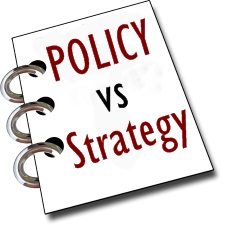10 Important Objectives of Economic Planning
Economic planning implies state intervention and administration to have conscious and coordinated efforts to control and direct economic activities. But mere state intervention cannot be construed as economic planning.
When state intervention extends to cover the economic system as whole with predetermined objectives to be fulfilled within a stipulated period, it is called economic planning.

Table of Contents
- 1 What are the objectives of economic planning?
- 1.1 1. Higher National Output
- 1.2 2. Rapid Industrialization
- 1.3 3. Modernization of Agriculture
- 1.4 4. Stability of the Economic System
- 1.5 5. Optimum Utilization of Productive Resources
- 1.6 6. Reduction of Inequalities of Income and Wealth
- 1.7 7. Standard of Living
- 1.8 8. Balanced Growth
- 1.9 9. Full Employment
- 1.10 10. Self-Sustained Growth
- 2 Infographic on top 10 Objectives of Economic Planning
What are the objectives of economic planning?
In general terms, it may be stated that the basic objective of an economic planning is rapid economic development of the country and to fulfill all social needs. The basic objectives of economic planning are realized through economic plans formulated for the purpose. All countries of the world adopt planning with specific objectives and most of the countries spell out the objectives as follows:
Here are the list of 10 important objectives of economic planning.
1. Higher National Output
The foremost objectives of economic planning is higher national output. Most of the backward economies would be impoverished because of poor national output and the per capita output will be very low when compared to the population and requirement of the people.
The contention that capitalism with automatic price mechanism will increase national output is untenable. The allocation of resources will not be judicious and resources will be diverted or wasted to cater the needs of the richer classes. The output will not be properly coordinated with the real needs of the economy. When consumers choice become irrational, the wastage of resources will be all the more conspicuous.
2. Rapid Industrialization
The master key for economic development lies in the industrialization of the country. The economy may have potentialities for producing plenty of goods. But due to lack of industrialization, the powers of the economy will remain dormant and the economy will be condemned as backward.
Industrialization in the true sense of the term can take place only by deliberate investment and diversion of resources by the central authority. In an unplanned economy, industrialization cannot take place in the spheres where massive investments are required and where the gestation period is long.
Left to itself, under private enterprise; only consumer goods industries will be started to get quick returns. To create necessary infrastructure in the economy and to accelerate further development, industrialization is essential and this can be done only by proper planning.
3. Modernization of Agriculture
In many of the backward economies, agriculture will be the basic sector and the entire economy would revolve only on agriculture and raw materials produced out of extractive industries. There will be unemployment with heavy pressure of population in the agricultural sector. The productivity will be very low.
Without modernizing agriculture, industrial development will not prove successful. An agrarian revolution should precede industrial revolution. This is another important objective of planning.
4. Stability of the Economic System
Internal and external stability of the economic system should be ensured for the smooth working of the system. In an unplanned economy under capitalism, the economy would be subject to violent fluctuations; the depression and boom would jeopardize the functioning of the economy.
There will be economic miseries in the absence of some in-built mechanisms to set right instability whenever the economy shows signs of disequilibrium. This can be done only by effective planning. The unplanned capitalistic system is notorious for its instability.
5. Optimum Utilization of Productive Resources
Under unplanned system, resources will be utilized by the private sector for profit and consequently the resources will get malutilized. The presence of competitive market will also result in over utilization of resources. There will not be optimum utilization of the scarce resources of the economy. This can be done only by means of judicious allocation under planning.
6. Reduction of Inequalities of Income and Wealth
This is one of the most important objectives of economic planning. Economic development and consequent greater output may not benefit the poorer classes. The fruits of economic growth may fall in the laps of the already affluent classes as was the case in Indian planning.
In a backward underdeveloped economy, there will be gross inequalities of income and wealth. So, the objective of economic planning is to reduce the inequalities as much as possible by various measures and at the same time guard against perpetuating inequalities due to economic development.
Many development plans may generate problems of inequalities and an effective planning will have to reduce the inequalities. Herein comes the dual policy objectives, viz., economic growth with social justice. The object is not merely growth in quantitative terms but ensuring of social justice, which can be possible only by means of planning.
7. Standard of Living
The object of planning is not merely production but also proper distribution of the product to uplift the standard of living of the common people. Planning attempts to distribute he product to the weaker sections of the society.
Investment on education, sanitation, slum clearance, housing programme, medical facilities, social insurance, etc., aim at increasing the standard of living of the poor people. Private sector will not make outlays on social overheads for the uplift of the workers and this has to be done only by means of public investment through planning.
8. Balanced Growth
This is also another objective of planning. Some regions will be backward due to climatic and geographical reasons. The object of planning is to develop the backward regions economically and socially. This can be done only by deliberate planning and investment in the ‘private sense’ but social return in the ‘welfare sense’.
9. Full Employment
Solving the unemployment and under employment problems will be one of the main tasks of planning objectives. The genesis of the problem of unemployment can be traced to the disequilibrium between demand for and supply of manpower.
The task of ‘manpower planning‘ in the national context is to match manpower supply and manpower demand, quantitatively and qualitatively. To a very great extent unemployment results from absence of such manpower planning.
10. Self-Sustained Growth
The ultimate object of planning is to make the economy self-reliant and there will be self-sustained economic growth without foreign assistance. At this stage, the economy can produce anything it likes. This stage can be achieved only by effective planning.
All the above objectives need not be taken up simultaneously. Different objectives may be emphasized by planning authorities at different times depending on social need and economic policies.


